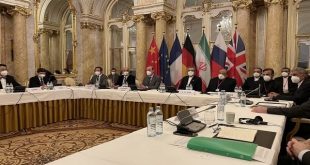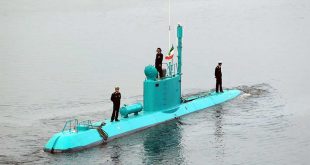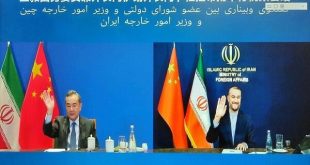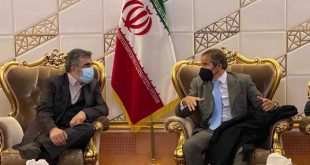Iranian Foreign Minister Mohammad Javad Zarif in a telephone conversation with his Azeri counterpart Jeyhun Bayramov voiced his country’s readiness to help achieve sustainable peace and solution to the dispute and clashes between the two neighboring countries of Azerbaijan and Armenia within the framework of a regional initiative by Iran, Turkey and Russia, as well as the Minsk Group.
During the phone talk on Thursday, Zarif reaffirmed Iran’s principled stances and said that Azerbaijan’s territorial integrity should be respected.
He, meantime, voiced Iran’s readiness to help achieve sustainable peace and solution to the dispute within the framework of the regional initiative by Iran, Turkey, and Russia, as well as Minsk Group.
The Azeri foreign minister, for his part, elaborated on the latest battlefield developments in the Karabakh region.
The Iranian and Azeri foreign ministers also emphasized the importance and role of a regional initiative in resolving the several-decade-old crisis.
Iran has repeatedly asked for a settlement of the conflict and urged the cessation of hostilities in Nagorno-Karabakh.
The dispute over Nagorno-Karabakh started in 1988 and led to military conflict in 1992.
Two days ago, Armenian and Azeri foreign ministers through Russia’s mediation agreed on a ceasefire but the violation of the ceasefire suggests the truce agreement is fragile.
Armenia and Azerbaijan resumed clashes on the border between the two countries on September 27 blaming each other for the violence.
Nagorno-Karabakh has been a bone of contention between the two countries over the past decades.
In 1994, following four years of military conflict between the two countries, some European and regional governments stepped in to end the territorial dispute between Baku and Yerevan, and a ceasefire was finally established through the mediation of the Minsk Group of the Organization for Security and Cooperation in Europe (OSCE). But international efforts to resolve the conflict peacefully have so far been unsuccessful.
More than 20 days into the Caucasian military conflict, the clashes are on the rise despite the ceasefire that was singed earlier in the week.
The agreement to pause hostilities in order to exchange prisoners and the bodies of those killed was approved by the foreign ministers of Armenia and Azerbaijan in marathon talks in the Russian capital last Friday.
The talks were the first diplomatic contact between the two former Soviet republics since the recent escalation that broke out in late September. About 500 people have been reported killed.
Karabakh is internationally recognized as part of Azerbaijan, but it has been held by ethnic Armenian separatists backed by Armenia since 1992 when they broke from Azerbaijan in a war that killed some 30,000 people.
 WILAYAH NEWS VOICE OF THE GLOBAL AWAKENING
WILAYAH NEWS VOICE OF THE GLOBAL AWAKENING






